11+ Class Warfare Horror and Thriller Films
Here is a list of films that take “Eat the Rich” literally.
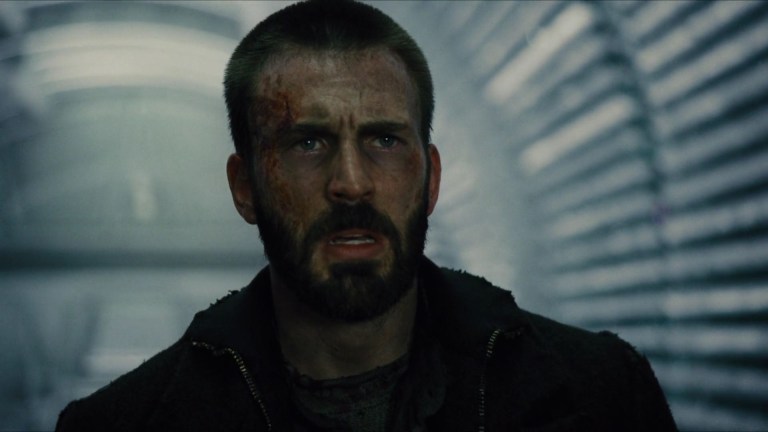
Table of Contents
“When the people shall have nothing more to eat, they will eat the rich.” This phrase originally circulated during the French Revolutionary War. It was created by the political philosopher Jean-Jacques Rousseau. He sought the downfall of the aristocrats who hoarded wealth while 98% of the country starved. The abbreviated phrase “eat the rich” reemerged in political protests when the wealth gap between the USA’s richest and poorest citizens more than doubled in 30 years.
Class warfare is prevalent throughout history in every continent. Extreme circumstances such as the Revolutionary Wars have been translated into cinema, as well as more subtle examples that highlight the different lives of working-class and upper-class citizens. Plutocracy is a nine-hour five-part film series that explores history through the labor of the working class. The same concepts have led to rebellious films that mix freedom and anarchy, such as Metropolis (1927) and Fight Club (199).
These films raise many questions, such as how does privilege affect justice? Are the rich hoarding otherwise life-saving resources? Is wealth naturally exploitative? The answers to these questions may be explored in film through a bizarre and bloody format, such as baked into a meat pie, or on board a dystopian train. Where else can you find this philosophy hidden in horror films? Keep reading to find out.
The Best Class Warfare Films
They Live (1988)
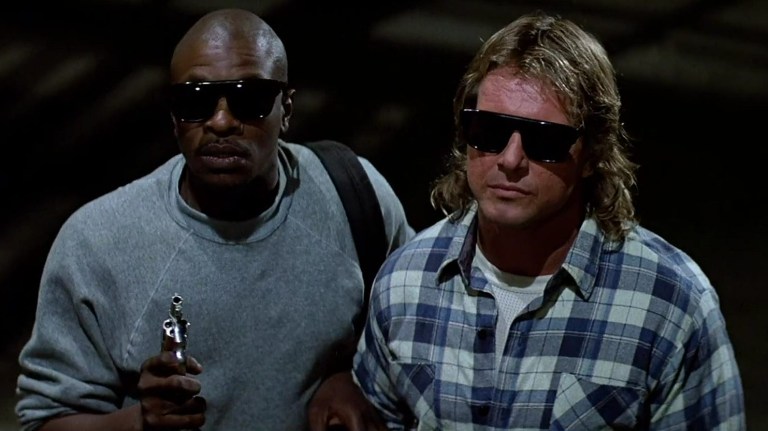
The majority of the people of any given population, the thoughts and actions of the ruling class seem completely alien. They Live proposes the idea that they actually are aliens, and they’re feeding us subliminal messages to preserve the status quo. “By the end of the ’70s there was a backlash against everything in the ’60s, and that’s what the ’80s were,” says director John Carpenter. “Something called a yuppie came into existence, and they just wanted money. . . I decided I had to make a statement, as stupid and banal as it is, but I made one, and that’s They Live.”
The People Under the Stairs (1991)
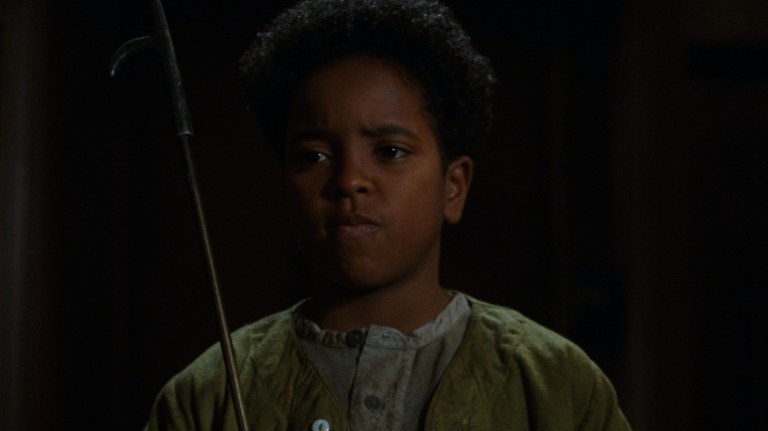
A young boy who goes by the nickname Fool is about to be evicted from the apartment he shares with his family. In need of money to keep a roof over his head and to help provide for his mother’s life-saving cancer treatments, Fool is convinced to help burglarize the home of the Robesons, the rich landlords of his apartment complex. Within the Robesons’ home, Fool encounters the people under the stairs, a misunderstood group who suffer terrible punishments at the whims of the Robesons and their rules. The symbolism for the upper and lower classes in The People Under the Stairs is both obvious and robust, and the conflict between these classes is pure Wes Craven horror.
Land of the Dead (2005)
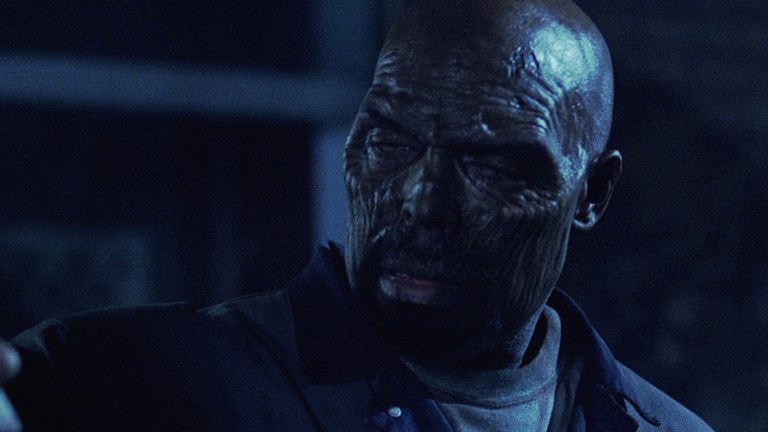
The zombie apocalypse creates a new class divide. Huddled within a facade of security in a tower at the center of a fortified city called Fiddler’s Green, the rich live in relative luxury in a devastated world. Below the tower, the poor struggle to survive on the outskirts of the city. Also, it has been many years since director George Romero’s zombies first started rising, and in that time they have evolved. Now, they show signs of increasing intelligence, and they gather to start a revolution that takes “eat the rich” completely literally.
Sweeney Todd: The Demon Barber of Fleet Street (2007)
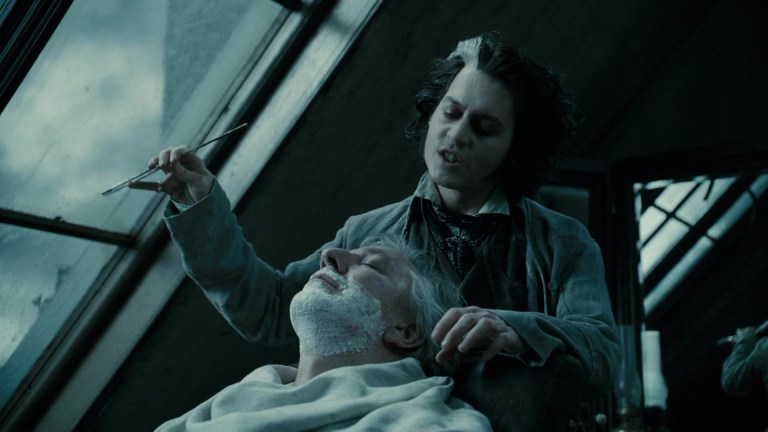
Sweeney Todd: The Demon Barber of Fleet Street is a horror musical that shows a justice system that preys on the poor while serving the rich. When barber Sweeney Todd is released from prison, he and his lovesick landlord Mrs. Lovett devise a radical plan that creates equality through destruction. To Sweeney, his razor is the great equalizer. While the mournful barber hums a tune, his blade cuts the throat of rich and poor men alike. With Mrs. Lovett baking meat pies downstairs, her bakery takes “eating the rich” to a new level. “The history of the world my love, is those below serving those up above. How gratifying for once to know that those above will serve those down below.” These lyrics, as well as many more in the soundtrack, are full of commentary on the disparity between economic classes.
Would You Rather (2012)
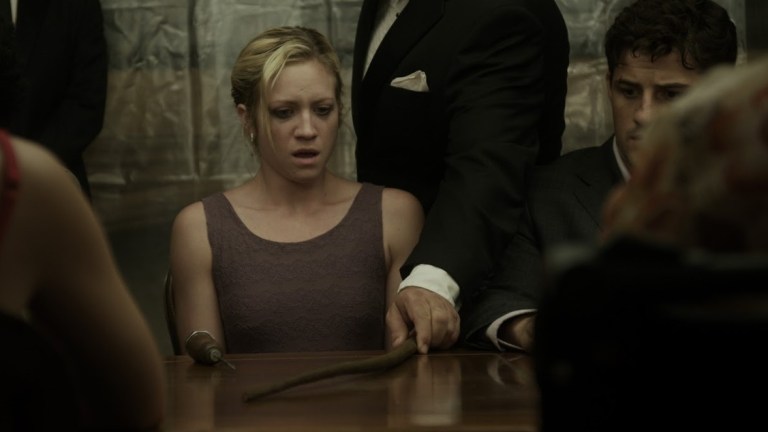
The elite torture people in need, using money as an incentive, in the movie Would You Rather. Iris (Brittany Snow) needs money to pay for her brother’s leukemia treatments. Desperate, she accepts an offer to attend a dinner party where huge sums of money are offered to people if they complete a series of dares. The main event of the evening is a game of “would you rather” where the choices of which action you would prefer to do become increasingly deadly.
Snowpiercer (2013)
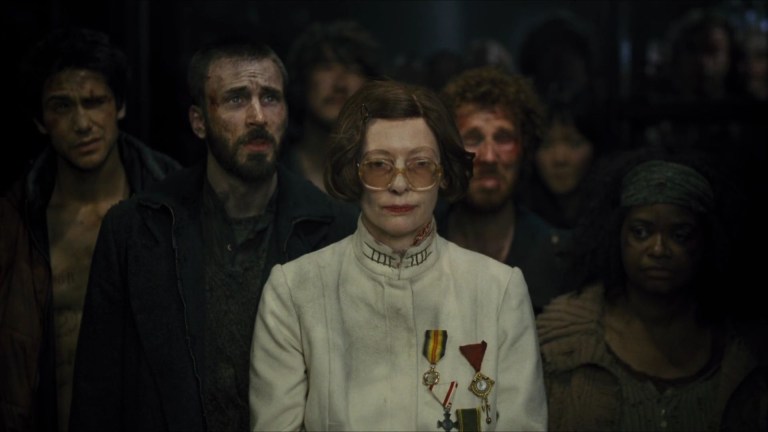
A train pierces through a deserted post-apocalyptic landscape. Within it lives a “new” class system. The lower class is doomed to live a life in the caboose, where they share minimal resources. Wanting the train to share its resources evenly rather than being hoarded at the front of the train, a revolution begins to rise. “I have social commentary in all my films,” says South Korean director Bong Joon Ho. “But because here it’s in the context of sci-fi, it’s more direct and open and the ideas are about capitalism, which is relatable to people from many countries, not just Korea.”
High-Rise (2015)
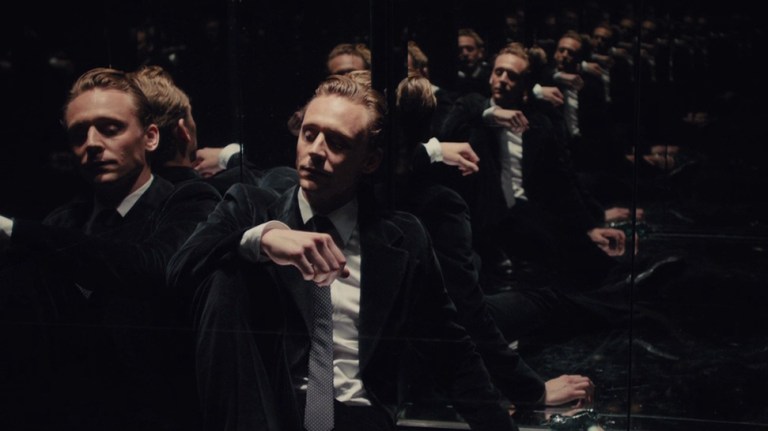
In 1975 London, a high-rise building is home to various classes of people. The wealthy live at the top, while the economic status of the tower’s inhabitants lowers as the floor numbers decrease. Conflicts arise between the floors and classes, leading to all-out chaos. “The idea of rich and poor or the idea of success and failure, which it often boils around to, affects everybody in every culture,” says director Ben Wheatley. “I think society is an illusion and that we all invest in it and hope that it won’t go wrong.”
Ready or Not (2019)
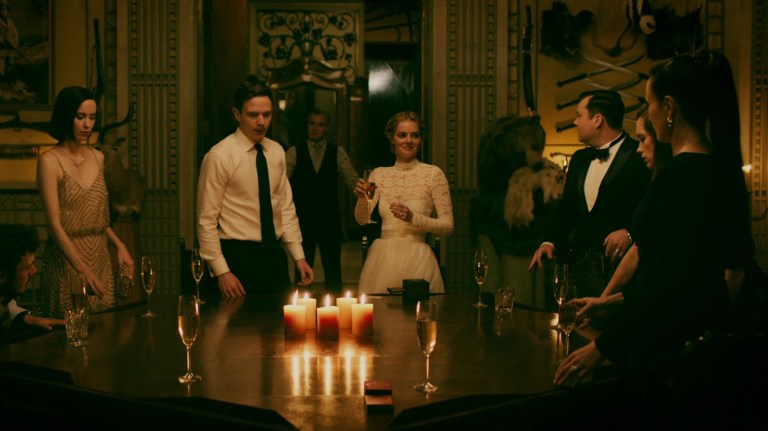
Rich people have strange wedding night customs. That’s what Grace (Samara Weaving), a working-class bride, assumes when she is subjected to a game of hide-and-seek after reciting her vows. Quickly, the game turns violent. Grace realizes her new in-laws are hunting her to use in a satanic ritual, a long-standing tradition of the dynastic Le Domas family that she married into. This comedy horror not only explores the tension between social classes but also the tension that arises between a new wife and her in-laws.
Parasite (2019)
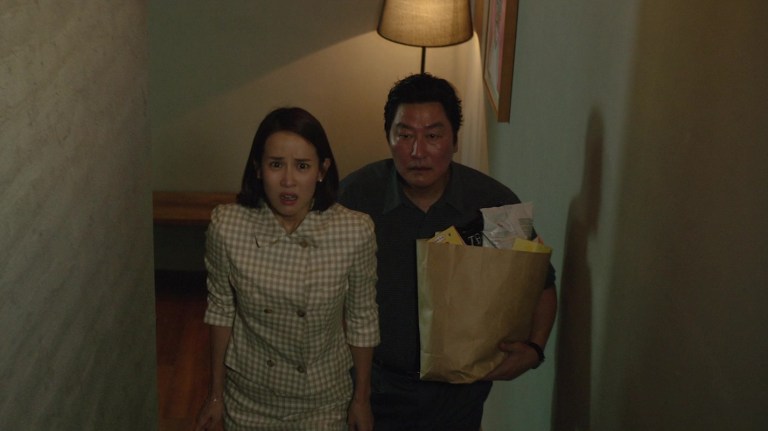
Desperate to escape their basement dwelling, the Kims scheme their way into working for a wealthy family in Seoul. Having been unable to afford university, the Kims must lie about their education and experience to obtain positions in the aristocratic household. Once they infiltrate the home, they try to assimilate. Within its luxurious walls, the poor Kim’s and the rich Park’s feed off each other’s labor and luxuries like parasites.
The Hunt (2020)
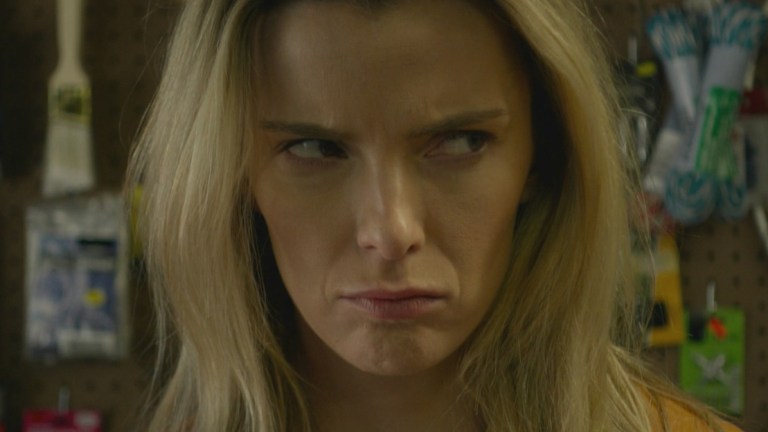
Political conspiracy theories jump from online to real life as a group of strangers wake up in the forest. They have been selected to participate in a mysterious and sinister game where the wealthy prey on the working class. The Hunt is filled with political references that mock Democrats and Republicans alike. While fictional stories of human hunting may feed conspiracy theories, it also serves as a metaphor for the volatile relationship between economic classes.
Infinity Pool (2023)
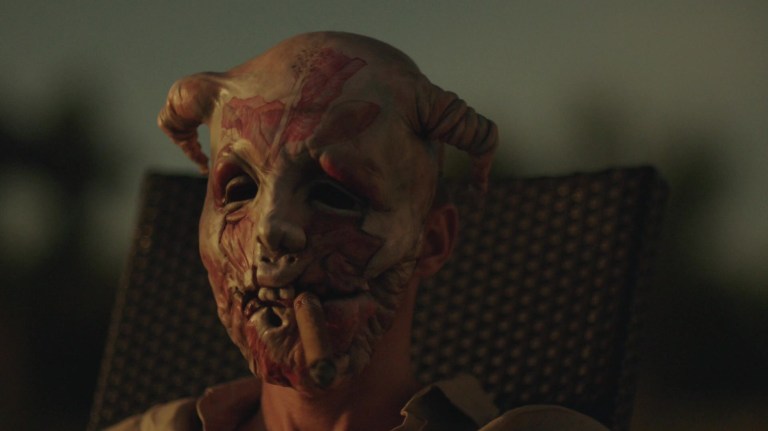
The elite classes are often seen as being able to do whatever they want with complete impunity. They can buy their way out of repercussions which the lower classes would end paying dearly for. Infinity Pool tells the story of a group of wealthy people who avoid consequences for any horrific crimes they commit while on vacation. They do this by paying to have a clone of themselves created, and the clone is punished instead. This way the elite get can get away with anything, law enforcement fulfills their obligations, and the poor are the ones who continually suffer.
More Class Warfare Films
- The Exterminating Angel/El ángel exterminador (1962) – After the servants leave, a lavish dinner party full of aristocrats spirals into madness. The wealthy guests soon discover that they are stuck in the mansion’s salon. While they talk about the difference between the lower class and their own, they must resort to their primal instincts to survive.
- The Masque of the Red Death (1964) – While peasants in his land die of the “Red Death,” Prince Prospero throws a lavish party within the safety of his castle.
- Delicatessen (1991) – A cannibalistic landlord feeds off of his tenants, in more ways than the typical financial sense.
- You’re Next (2011) – Erin (Sharni Vinson) accompanies her boyfriend to meet his rich family at their luxurious and remote home. A home invasion inspired by greed occurs, and the outsider, Erin, is the only person with the practical skills needed to survive.
- The Purge (2013) – A new holiday is declared that transforms class structure into jungle warfare. For one day, all of America lives by survival of the fittest.
- The Platform (2019) – A platform of food descendants through a vertical prison. Each floor gets less and less food until only scraps are left for those on the bottom floor.
- Us (2019) – Jordan Peele’s film asks the question, what really separates us from the people “below” us in society?
- Raging Grace (2023) – Follows an undocumented mother who takes a job caring for a wealthy dying man in his British mansion.
